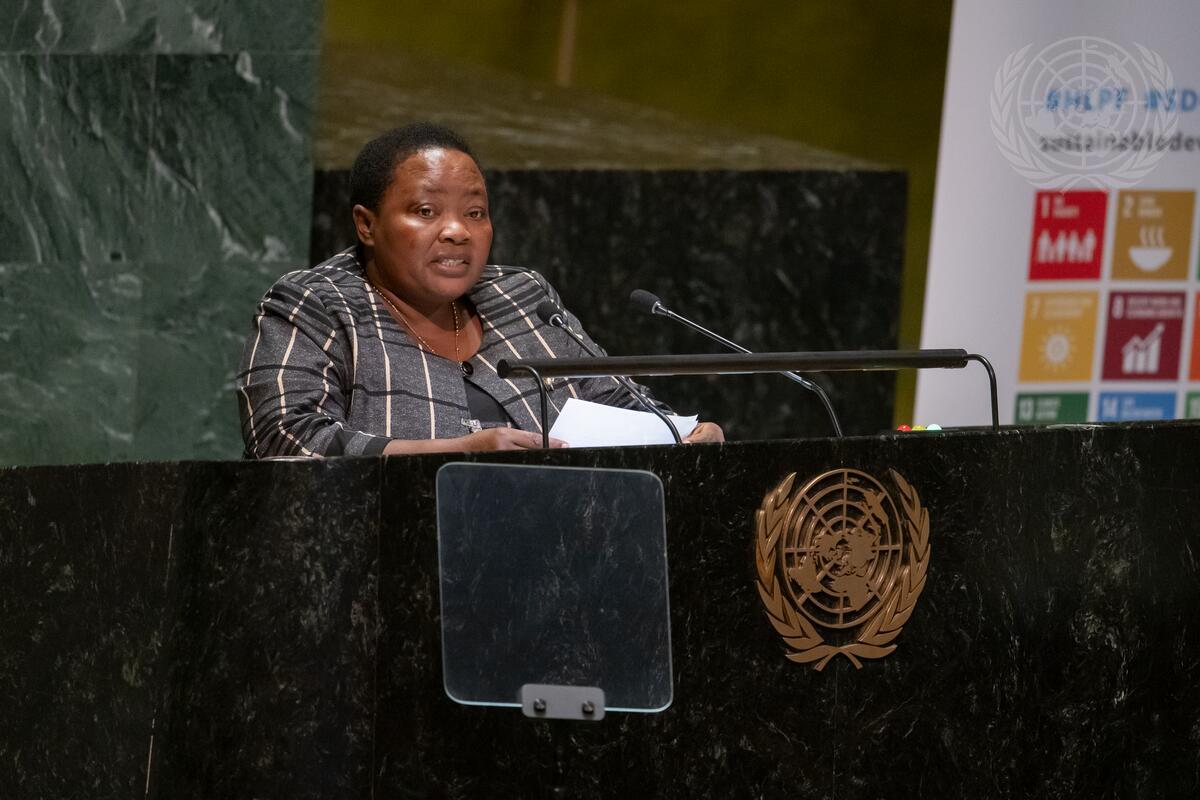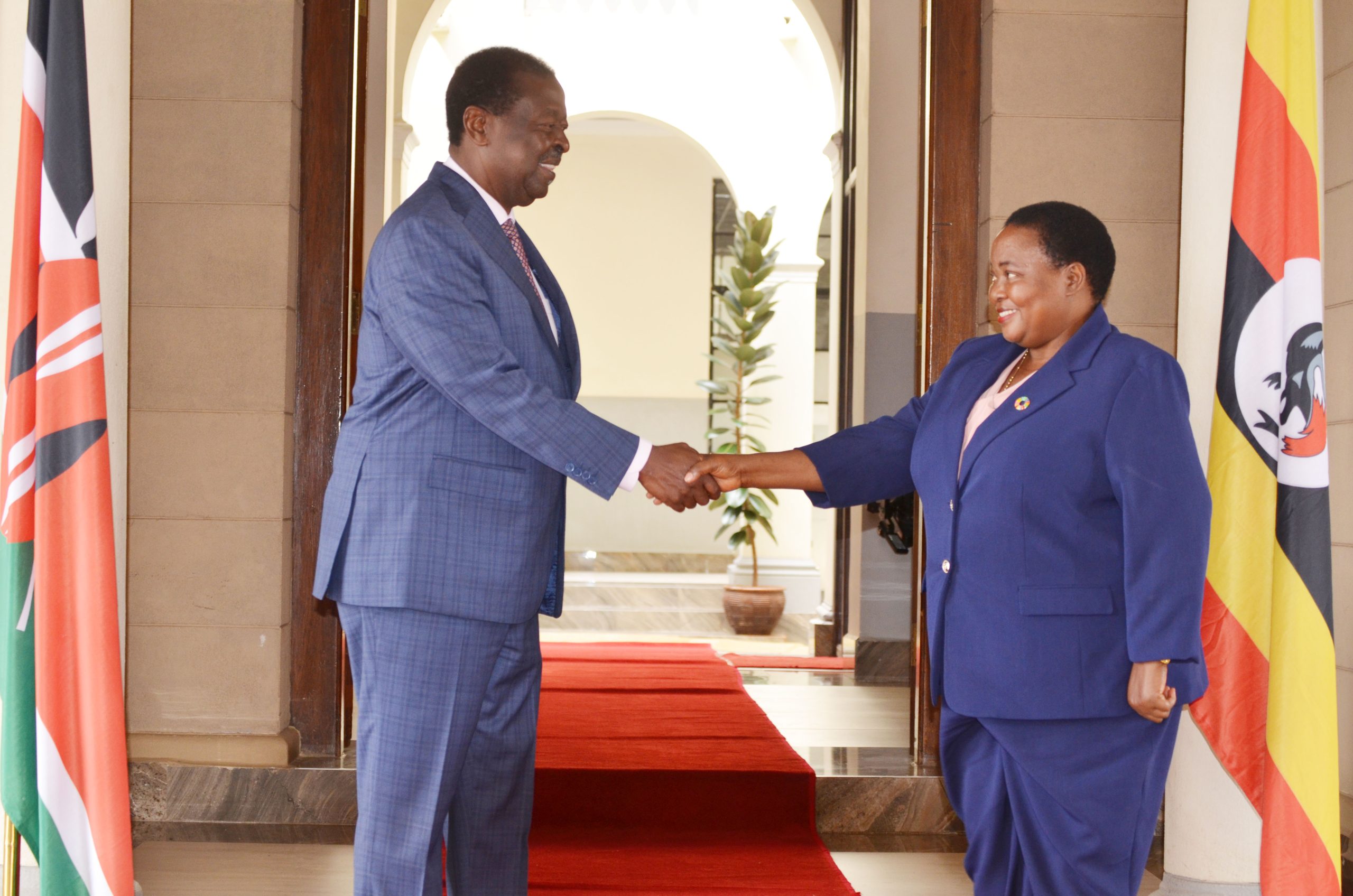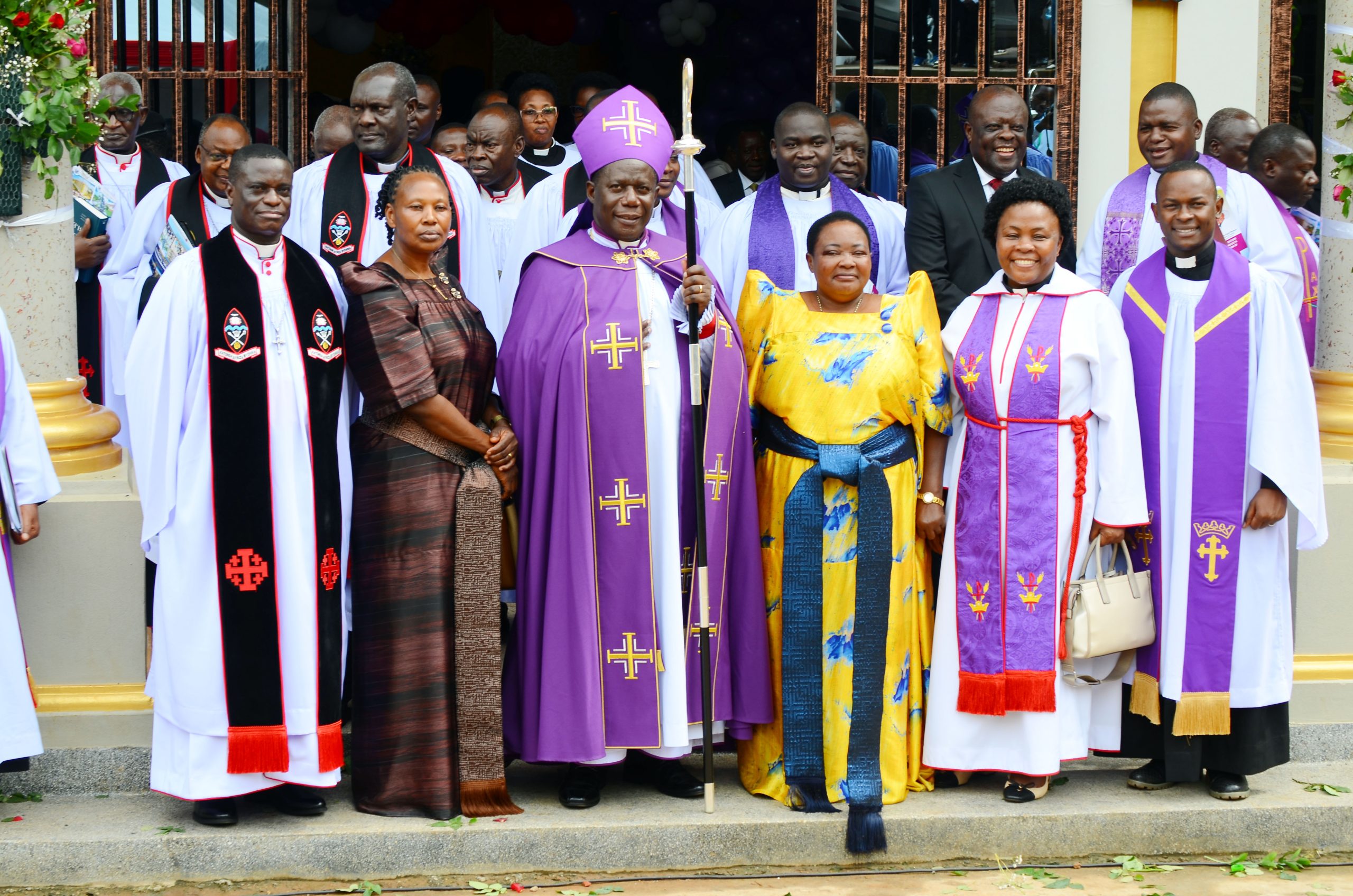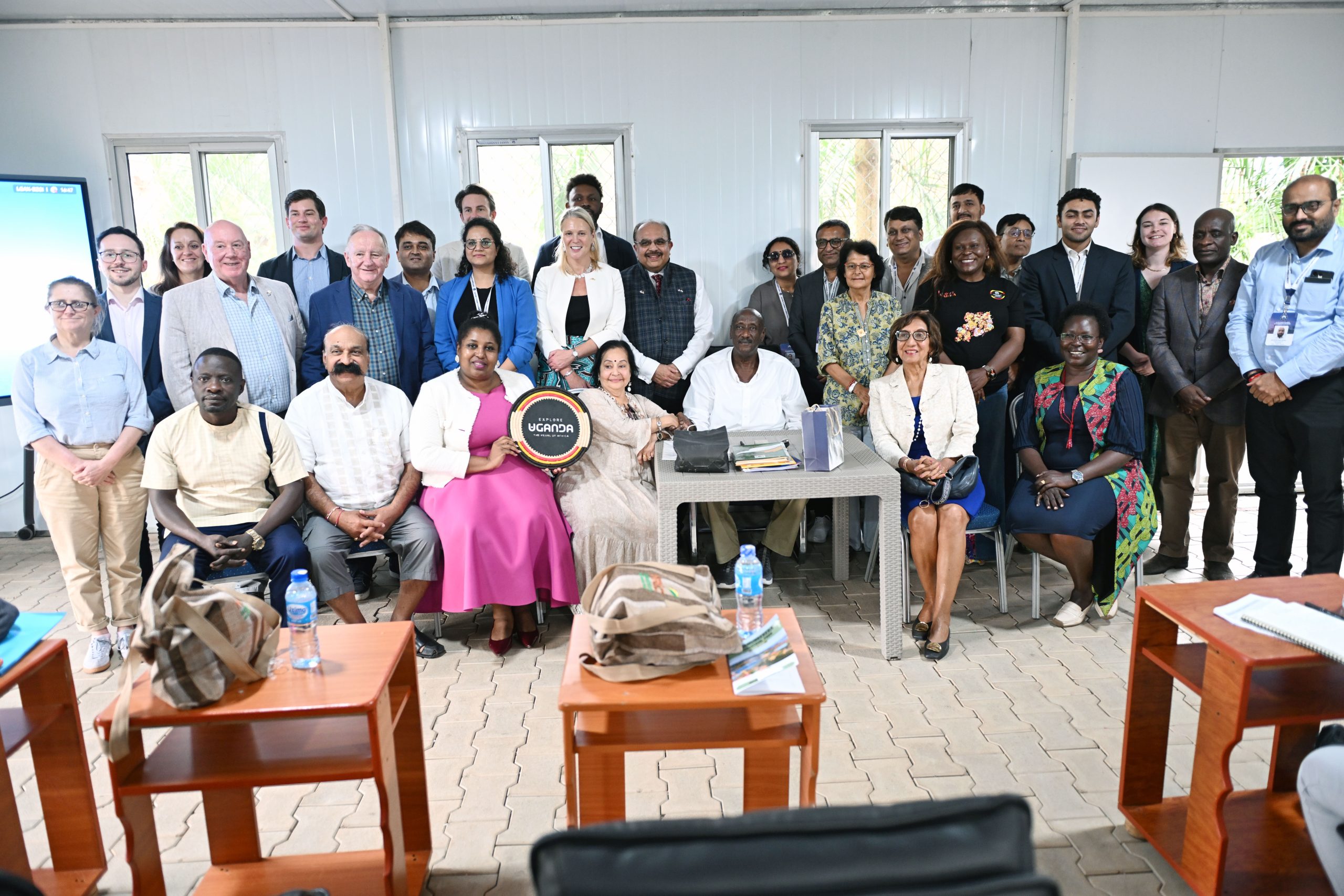By: Ismael Kasooha
New York
The Prime Minister Rt. Hon. Nabbanja Robinah has told global leaders that Uganda through extensive national and sub-national level consultations, developed six strategic commitments aimed at accelerating sustainable development Goals implementation and driving socio-economic transformation.
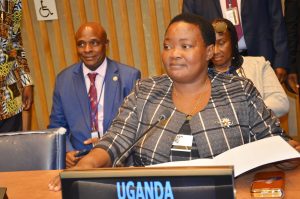
The Premier at the UN High Level Political Forum in New York
Nabbanja made the remarks while making a presentation during the High-Level Political Forum (HLPF) on Sustainable Development during the 11th meeting at the United Nations Headquarters in New York.
Uganda’s national commitments are Accelerating Leave No One Behind Agenda through the inclusive Parish Development Model Implementation, accelerate inclusive actions for Trade financing and Climate-Smart investments and accelerate inclusive actions to leverage the advantages of Science, Technology and Innovation.
The others are Accelerating inclusive economic and social development through climate change adaptation and mitigation, Accelerate Efforts to harness the full potential of data to improve the lives of all Ugandans and Accelerate strengthening SDG coordination and service delivery mechanisms.

The Ugandan delegation at the UN during the High-Level Political Forum in New York
Nabbanja said “to achieve these commitments, the Government will integrate them into the Fourth National Development Plan (2025 – 2030) which ushers us into the end of SDGs in 2030; enhance national and local financing mechanisms; strengthen partnerships for localized SDG efforts including citizen participation and strengthening the National Statistical systems.”
Nabbanja flanked by the Minister for Justice and Constitutional Affairs Nobert Mao responded to several issues raised by different countries during the HLPF.
The government of Netherlands tasked the Prime Minister to explain measures being taken to address the adverse weather conditions in the country.
While responding Nabbanja briefed world leaders that Uganda has put in place several mechanisms to deal with challenges of adverse weather and climatic changes.
“Uganda has a climate change act and climate change policy which provide direction to all sectors that are affected by climate change, the interventions include early warning systems, resettlement of disaster-prone communities, wetland restoration and tree planting which is ongoing,” said Nabbanja.
However, the Premier expressed concern over the slow and tedious process of accessing climate funds which is even resource intensive.
Nobert Mao, while responding to issues of civic space as raised by Civil Society Organizations, said that Uganda is a country governed under constitutional rule.
“We have strengthened collaboration and partnership with civil society organisations. Most of the Civil Society Organisations are owned by Ugandans. Their rights are embedded in the constitution and although we disagree occasionally, this does not mean that civic space is shrinking as alleged by some people,” said Mao.
Earlier on in the day the Prime Minister made a statement on behalf of the G77 +China where she assured world leaders of the commitment in attaining the SDGs. She re-echoed the need for the financial reforms to accelerate SDG implementation among the member states
Nabbanja said that G77+China will support all endeavors aimed at achieving the 2030 Agenda.
The Prime Minister also held bilateral talks with the President of United Nations General Assembly Dennis Francis at his offices in New York and discussed ways of strengthening working relations with Uganda.
Uganda is among the few countries selected worldwide to make presentations on the progress of implementation of the SDGs to benchmark on the achievements made so far.
The country has strengthened its monitoring and reporting mechanism on SDGs leading to an increase in indicators with data points from 41 in 2019 to the current 127.
At the mid-point of implementation of the 2030 Agenda, Uganda has made gains in SDGs implementation. Progress has been made in reducing both monetary and multidimensional poverty among the population.
End
